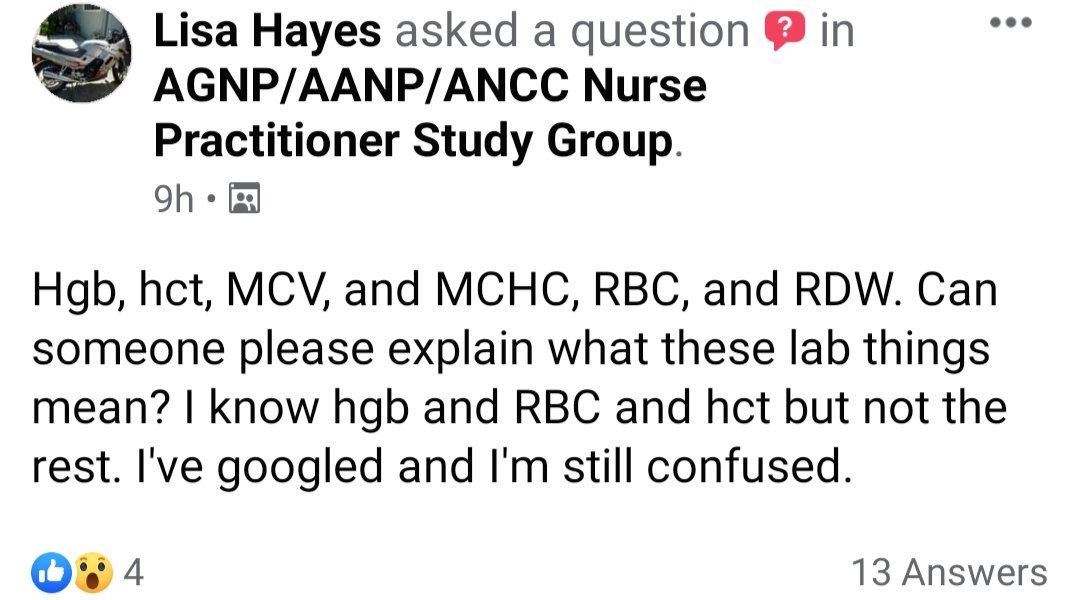CBC, Hgb, MCV, it's all gibberish to me!
💬 comments
Anyone who can't even read a CBC shouldn't be allowed anywhere near live patients.

We're not sure what's more mind-boggling here - the fact that this (prospective) NP doesn't seem to understand the basic components of a Complete Blood Count (CBC), or her claim that she's still confused after "Googling". Here's what you get when you Google "MCHC":

There it is, clear as day. We don't see how you could still be confused after reading that. Unless, maybe, you have absolutely no background in human biology or basic physiology and have no idea what hemoglobin is or what red blood cells are. Conceivably, that could be possible for a nurse practitioner, what with for-profit online diploma mills accepting virtually anyone with a thready pulse and a nonzero number of brain cells. Can you imagine that a person asking stupid questions like this might one day be ordering lab tests on patients - tests that they might not even know how to interpret? By contrast, this is basic stuff for first- and second-year medical students - so basic that it wears Uggs and has a Starbucks membership. Not to mention, medical students are expected to know the intricacies of the underlying pathophysiology of various hematologic disorders such as the thalassemias, microcytic and macrocytic anemias, leukemias, etc. and how they might manifest on laboratory work. Do you really think a midlevel nurse practitioner could recognize and appropriately respond to hematologic pathology if they don't even know what MCV is? A solid foundation in the basics of medicine is worth its weight in gold, and that's not what you get when you pump shoddy students through equally-shoddy online diploma mills and 500 hours of clinical "shadowing" glorified as "training". There's a reason why physicians undergo four years of college education, four years of medical school, and three or more years of residency - even the easiest parts of medicine are hard when you don't know what you're doing.